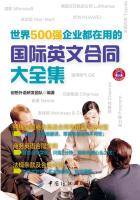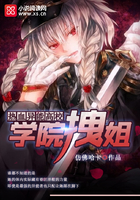It has been indicated that disaffection followed theelevation of Losada to the presidency. This feelingcontinued to grow. Throughout the entire republic thereseemed to be a spirit of silent, sullen discontent. Even theold Liberal party to which Goodwin, Zavalla and otherpatriots had lent their aid was disappointed. Losada hadfailed to become a popular idol. Fresh taxes, fresh importduties and, more than all, his tolerance of the outrageousoppression of citizens by the military had renderedhim the most obnoxious president since the despicableAlforan. The majority of his own cabinet were out ofsympathy with him. The army, which he had courted bygiving it license to tyrannize, had been his main, and thusfar adequate, support.
But the most impolitic of the administration’s moveshad been when it antagonized the Vesuvius FruitCompany, an organization plying twelve steamers with acash capital somewhat larger than Anchuria’s surplus anddebt combined.
Reasonably, an established concern like the Vesuviuswould become irritated at having a small, retail republicwith no rating at all attempt to squeeze it. So, when thegovernment proxies applied for a subsidy they encountereda polite refusal. The president at once retaliated by clappingan export duty of one real per bunch on bananas—athing unprecedented in fruit-growing countries. TheVesuvius Company had invested large sums in wharvesand plantations along the Anchurian coast, their agentshad erected fine homes in the towns where they hadtheir headquarters, and heretofore had worked withthe republic in good-will and with advantage to both. Itwould lose an immense sum if compelled to move out.
The selling price of bananas from Vera Cruz to Trinidadwas three reales per bunch. This new duty of one realwould have ruined the fruit growers in Anchuria andhave seriously discommoded the Vesuvius Company hadit declined to pay it. But for some reason, the Vesuviuscontinued to buy Anchurian fruit, paying four reals for it;and not suffering the growers to bear the loss.
This apparent victory deceived His Excellency; and hebegan to hunger for more of it. He sent an emissary torequest a conference with a representative of the fruitcompany. The Vesuvius sent Mr. Franzoni, a little, stout,cheerful man, always cool, and whistling airs from Verdi’soperas. Senor Espirition, of the office of the Minister ofFinance, attempted the sandbagging in behalf of Anchuria.
The meeting took place in the cabin of the Salvador, ofthe Vesuvius line.
Senor Espirition opened negotiations by announcingthat the government contemplated the building of arailroad to skirt the alluvial coast lands. After touching uponthe benefits such a road would confer upon the interestsof the Vesuvius, he reached the definite suggestion that acontribution to the road’s expenses of, say, fifty thousandpesos would not be more than an equivalent to benefitsreceived.
Mr. Franzoni denied that his company would receive anybenefits from a contemplated road. As its representativehe must decline to contribute fifty thousand pesos. But hewould assume the responsibility of offering twenty-five.
Did Senor Espirition understand Senor Franzoni tomean twenty-five thousand pesos?
By no means. Twenty-five pesos. And in silver, not ingold.
“Your offer insults my government,” cried Senor Espirition,rising, with indignation.
“Then,” said Mr. Franzoni, in warning tone, “we willchange it.”
The offer was never changed. Could Mr. Franzoni havemeant the government?
This was the state of affairs in Anchuria when the winterseason opened at Coralio at the end of the second yearof Losada’s administration. So, when the governmentand society made its annual exodus to the seashore itwas evident that the presidential advent would not becelebrated by unlimited rejoicing. The tenth of Novemberwas the day set for the entrance into Coralio of thegay company from the capital. A narrow-gauge railroadruns twenty miles into the interior from Solitas. Thegovernment party travels by carriage from San Mateoto this road’s terminal point, and proceeds by train toSolitas. From here they march in grand procession toCoralio where, on the day of their coming, festivitiesand ceremonies abound. But this season saw an ominousdawning of the tenth of November.
Although the rainy season was over, the day seemed tohark back to reeking June. A fine drizzle of rain fell allduring the forenoon. The procession entered Coralio amida strange silence.
President Losada was an elderly man, grizzly bearded,with a considerable ratio of Indian blood revealed inhis cinnamon complexion. His carriage headed theprocession, surrounded and guarded by Captain Cruz andhis famous troop of one hundred light horse “El CientoHuilando.” Colonel Rocas followed, with a regiment ofthe regular army.
The president’s sharp, beady eyes glanced about him forthe expected demonstration of welcome; but he faced astolid, indifferent array of citizens. Sightseers the Anchuriansare by birth and habit, and they turned out to their last ablebodiedunit to witness the scene; but they maintained anaccusive silence. They crowded the streets to the very wheelruts; they covered the red tile roofs to the eaves, but therewas never a “viva” from them. No wreaths of palm andlemon branches or gorgeous strings of paper roses hung fromthe windows and balconies as was the custom. There was anapathy, a dull, dissenting disapprobation, that was the moreominous because it puzzled. No one feared an outburst,a revolt of the discontents, for they had no leader. Thepresident and those loyal to him had never even heardwhispered a name among them capable of crystallizingthe dissatisfaction into opposition. No, there could be nodanger. The people always procured a new idol before theydestroyed an old one.















